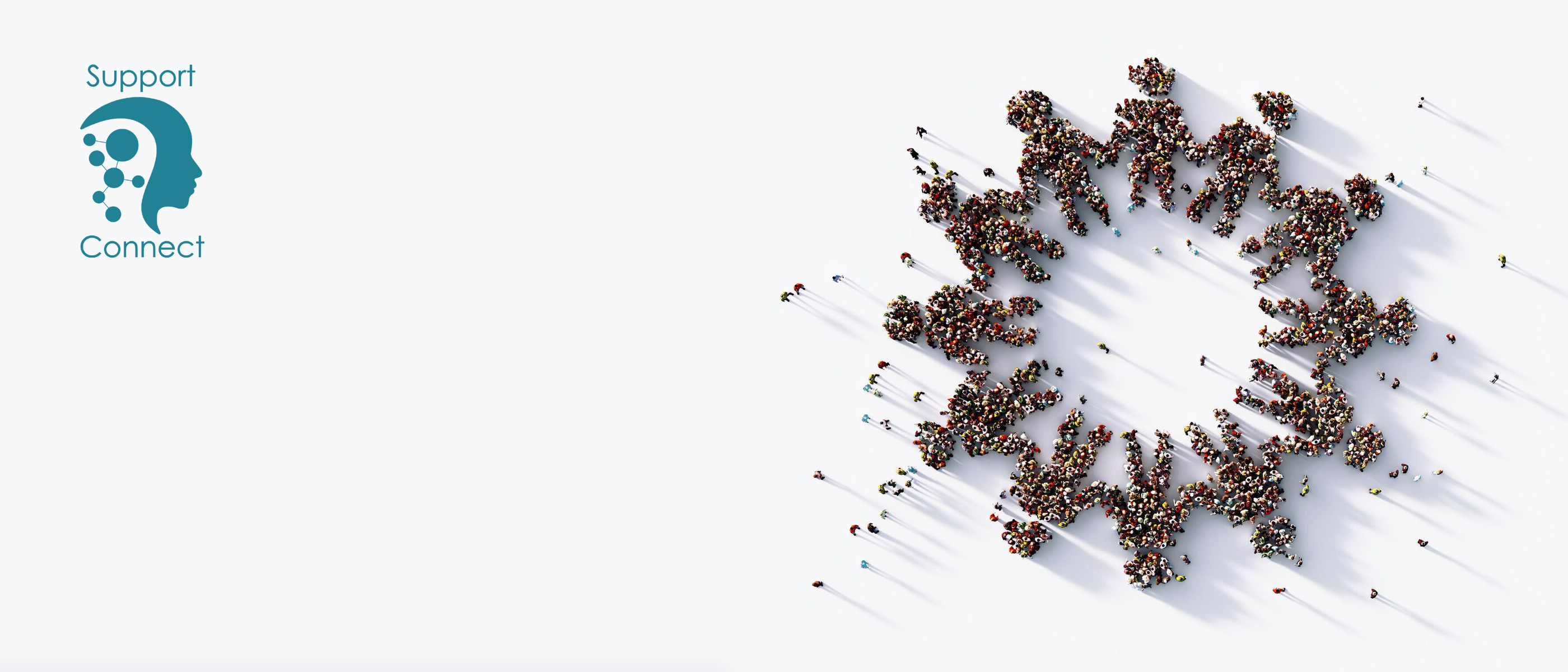Specialist Learning and Wellbeing Support
Our specialist learning support is primarily delivered by two different roles, each with experience and qualifications enabling them to support learners with learning disabilities and/or difficulties.
Learners are supported on an individual basis via remote support with a tailored plan in place to meet their individual needs.
The Specialist Learning Mentor is our primary support role and engages with apprentices around all aspects of their learning, including wellbeing barriers, presented by a learning need or disability.
The Wellbeing Mentor delivers mental health intervention and support for learners facing mental health difficulties that are impacting on their access to and progression through their apprenticeship.
Learners will be allocated the type of support most closely matching the additional learning needs. On some occasions both types of mentor role will be allocated. Decisions on what type of support will be most effective will be based on a learner’s initial assessment of need and discussioned with the learner.
We also deliver our IMPACT programme of fortnightly learning support, AT training and self-directed tasks aimed at learners with mild to moderate additional learning needs.
Our mentors work closely alongside our Assistive technology team to ensure that learners are able to maximise their use of software, and to contextualise their use of technology within the strategies and support that we deliver.
Learners are supported on an individual basis via remote support with a tailored plan in place to meet their individual needs.
The Specialist Learning Mentor is our primary support role and engages with apprentices around all aspects of their learning, including wellbeing barriers, presented by a learning need or disability.
The Wellbeing Mentor delivers mental health intervention and support for learners facing mental health difficulties that are impacting on their access to and progression through their apprenticeship.
Learners will be allocated the type of support most closely matching the additional learning needs. On some occasions both types of mentor role will be allocated. Decisions on what type of support will be most effective will be based on a learner’s initial assessment of need and discussioned with the learner.
We also deliver our IMPACT programme of fortnightly learning support, AT training and self-directed tasks aimed at learners with mild to moderate additional learning needs.
Our mentors work closely alongside our Assistive technology team to ensure that learners are able to maximise their use of software, and to contextualise their use of technology within the strategies and support that we deliver.
More about our Mentors
Specialist Learning Mentors are qualified and experienced practitioners who specialise in supporting learners to develop the skills and strategies they need to overcome their additional learning needs. They have the additional skills and knowledge required to support neurodiverse learners and other learners facing learning difficulties as a result of long-term medical conditions or mental health difficulties for example.
Specialist Learning Mentors work with learners on a one-to-one basis developing learning competences and strategies such as time management and organisation, test/exam preparation, independent study techniques and use of assistive technology. The role of the Specialist Learning Mentor may also involve helping the learner to cope with study-related stress and anxiety, and to manage difficult emotions linked to their learning difference or disability.
Our Specialist Learning Mentors promote independent learning and empower learners to manage and take ownership of their academic work and their training. They deliver support themselves and also signpost to other sources of advice and support.
NOTE: This is not subject specific tuition or day to day learning coaching and support, as these are the responsibility of the training/education provider. This role provides specialist learning support related to an additional learning need or disability.
Wellbeing Mentors are qualified mental health practitioners who work with learners on a one-to-one basis addressing the barriers to learning and apprenticeships created by a particular mental health condition. Their role is to provide mental health and wellbeing support that enables the apprentice to access their learning, whether on or off the job. Wellbeing Mentors support the development of skills and strategies that develop independence and build confidence among learners, empowering them to manage their study and workload and fully access their apprenticeships.
NOTE: Wellbeing Mentors are not advocates or counsellors. They should compliment rather than be seen as an alternative or replacement for specialist (e.g. NHS) mental health support.
All our Mentors are specialist roles intended to compliment and bring additional skills experience and support over and above that of a Training Provider’s tutors/instructors and learning mentors/coaches. With this in mind we will seek to work collaboratively with coaches and tutors as well as offering appropriate advice and guidance for clients and employers regarding SEND and specialist learning support.
Specialist Learning Mentors work with learners on a one-to-one basis developing learning competences and strategies such as time management and organisation, test/exam preparation, independent study techniques and use of assistive technology. The role of the Specialist Learning Mentor may also involve helping the learner to cope with study-related stress and anxiety, and to manage difficult emotions linked to their learning difference or disability.
Our Specialist Learning Mentors promote independent learning and empower learners to manage and take ownership of their academic work and their training. They deliver support themselves and also signpost to other sources of advice and support.
NOTE: This is not subject specific tuition or day to day learning coaching and support, as these are the responsibility of the training/education provider. This role provides specialist learning support related to an additional learning need or disability.
Wellbeing Mentors are qualified mental health practitioners who work with learners on a one-to-one basis addressing the barriers to learning and apprenticeships created by a particular mental health condition. Their role is to provide mental health and wellbeing support that enables the apprentice to access their learning, whether on or off the job. Wellbeing Mentors support the development of skills and strategies that develop independence and build confidence among learners, empowering them to manage their study and workload and fully access their apprenticeships.
NOTE: Wellbeing Mentors are not advocates or counsellors. They should compliment rather than be seen as an alternative or replacement for specialist (e.g. NHS) mental health support.
All our Mentors are specialist roles intended to compliment and bring additional skills experience and support over and above that of a Training Provider’s tutors/instructors and learning mentors/coaches. With this in mind we will seek to work collaboratively with coaches and tutors as well as offering appropriate advice and guidance for clients and employers regarding SEND and specialist learning support.
How we decide on levels of support
Learning support works best when it is planned and regular and our experience suggests that weekly sessions are the best way of supporting learners to acquire and embed the knowledge, strategies and skills to enable them to address the barriers they face as a result of their disability or long-term medical condition. Working with one Mentor is also the best approach, though this may depend on learner availability.
The pattern of support may vary from week to week depending on the focus of the apprenticeship and other factors, but weekly support in a regular time slot would be our recommendation, certainly at the initial stages of support. Learners will therefore be offered this level of support if appropriate after assessment.
We map out a learner’s support needs in an Individual Learning Plan (ILP) developed in the first few weeks of support. Targets and priorities for support are tracked and reviewed monthly to that ensure that the focus of the support remains relevant to a learner’s additional learning needs, and that support is still required.
NOTE:
The pattern of support may vary from week to week depending on the focus of the apprenticeship and other factors, but weekly support in a regular time slot would be our recommendation, certainly at the initial stages of support. Learners will therefore be offered this level of support if appropriate after assessment.
We map out a learner’s support needs in an Individual Learning Plan (ILP) developed in the first few weeks of support. Targets and priorities for support are tracked and reviewed monthly to that ensure that the focus of the support remains relevant to a learner’s additional learning needs, and that support is still required.
NOTE:
- We will only offer support that the learner requires so the frequency of sessions may reduce (or increase) over time depending on circumstances.
- We will always do our best to provide support at the best time for the learner.






